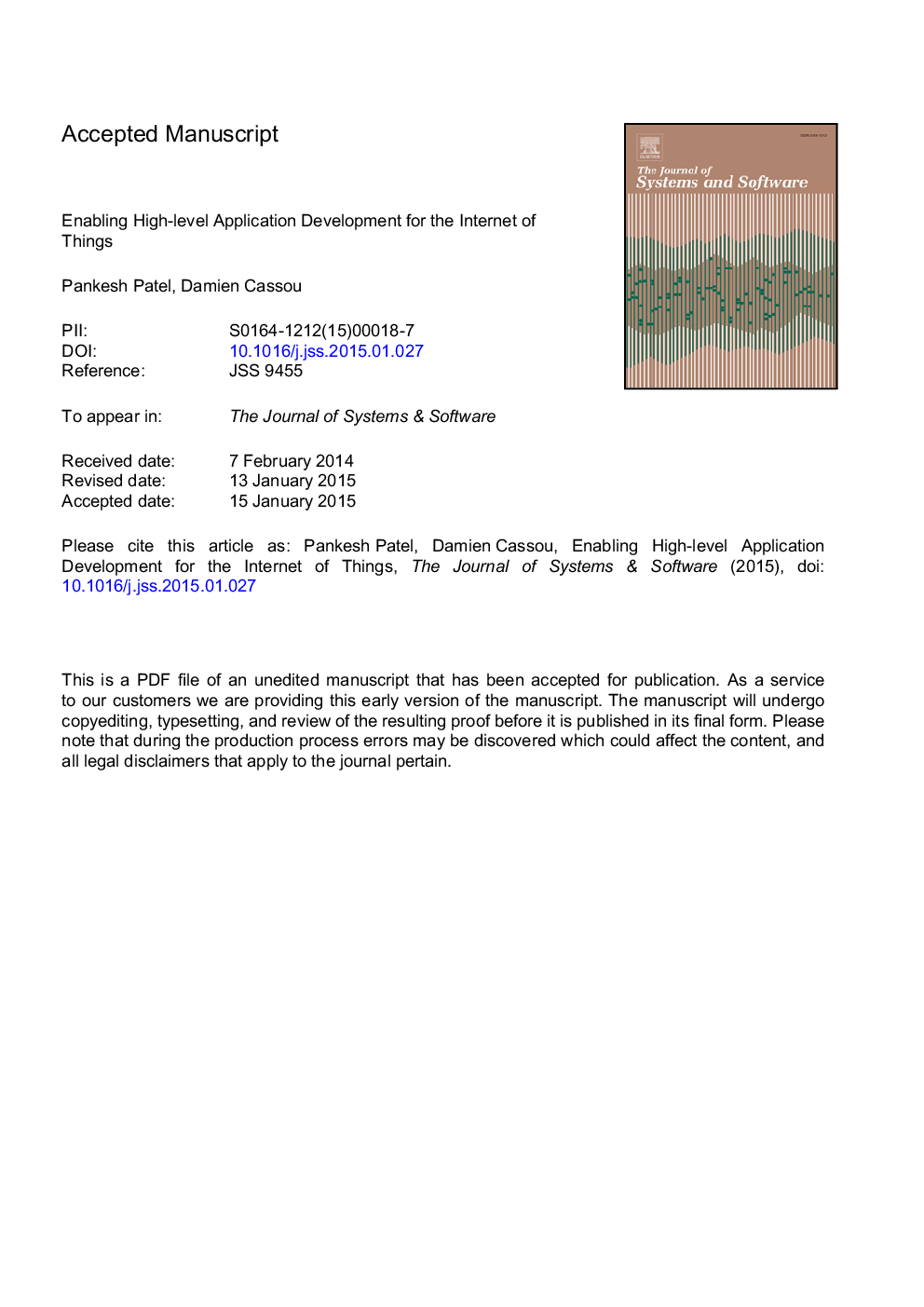| Article ID | Journal | Published Year | Pages | File Type |
|---|---|---|---|---|
| 6885646 | Journal of Systems and Software | 2015 | 36 Pages |
Abstract
Several approaches have been proposed in the closely related fields of wireless sensor network, ubiquitous and pervasive computing, and software engineering in general to address the above challenges. However, existing approaches only cover limited subsets of the above mentioned challenges when applied to the IoT. This paper proposes an integrated approach for addressing the above mentioned challenges. The main contributions of this paper are: (1) a development methodology that separates IoT application development into different concerns and provides a conceptual framework to develop an application, (2) a development framework that implements the development methodology to support actions of stakeholders. The development framework provides a set of modeling languages to specify each development concern and abstracts the scale and heterogeneity related complexity. It integrates code generation, task-mapping, and linking techniques to provide automation. Code generation supports the application development phase by producing a programming framework that allows stakeholders to focus on the application logic, while our mapping and linking techniques together support the deployment phase by producing device-specific code to result in a distributed system collaboratively hosted by individual devices. Our evaluation based on two realistic scenarios shows that the use of our approach improves the productivity of stakeholders involved in the application development.
Related Topics
Physical Sciences and Engineering
Computer Science
Computer Networks and Communications
Authors
Pankesh Patel, Damien Cassou,
